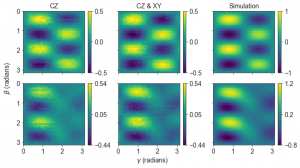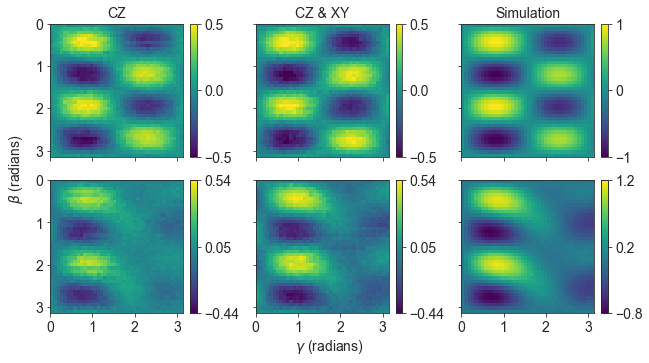
Researchers from Rigetti Computing say their work may lead to more powerful quantum algorithms through a reduction in gate count. The key, according to the team, is the XY two-qubit gate.
The study, which was just published in Nature, suggests that the team’s method “allows us to implement XY gates with a median fidelity of 97.35 ± 0.17%, approaching the coherence-limited gate fidelity of the two-qubit pair.”
The researchers report that the XY two-qubit gate set can offer reductions in circuit depth for generic circuits, as well as improved performance for problems with symmetries that match the gate set. They implemented the XY entangling gates in a transmon-based superconducting qubit architecture using a gate decomposition strategy that requires only a single calibrated pulse.
Improvements in performance are necessary for the current stage of quantum, according to the researchers.

They write: “Near-term applications of quantum information processors will rely on optimized circuit implementations to minimize the circuit depth, reducing the negative impact of gate errors in noisy intermediate-scale quantum (NISQ) computers.”
In a blog post written last year by Deanna M. Abrams, one of the researchers involved in the study, there is a relationship between the number of gates and performance.
“A set of qubit operations typically must be built using gates that are calibrated for a particular quantum system,” Abrams wrote. “The more types of calibrated gates available to use as building blocks, the fewer total gates are necessary for a given operation. And since algorithms with fewer gates means fewer errors, these programs tend to achieve better results.”
Abrams added, “Having access to the full family of XY gates provides even more building blocks for creating complex circuits, leading to larger possible reductions in gate depth for many algorithms.”
The researchers also show in the Nature study that the XY gate can be used to implement instances of the quantum approximate optimization algorithm, achieving a reduction in circuit depth of ~30% compared with the use of CZ gates only. They also extended decomposition scheme to other gate families, which can allow for further reductions in circuit depth.
The research team included Deanna M. Abrams, Nicolas Didier, Blake R. Johnson, Marcus P. da Silva and Colm A. Ryan.
If you found this article to be informative, you can explore more current quantum news here, exclusives, interviews, and podcasts.














